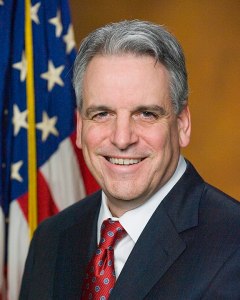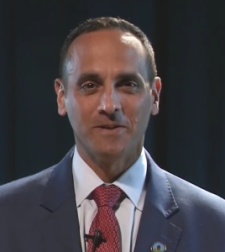 By Philip Eil
By Philip Eil
For more than three and a half years I’ve been fighting to access evidence from a trial that sent a man to prison for four consecutive life terms. The defendant in that case—Dr. Paul Volkman, the “Pill Mill Killer,” the “largest physician dispenser of Oxycodone in the US from 2003-2005”—went to college and medical school with my dad, and I’m trying to write a book about him.
Now, it might sound odd that I, or anyone in this country, would have to fight for access to trial evidence that’s already been shown in open court. Doesn’t the Sixth Amendment guarantee all citizens a public trial? Haven’t landmark court decisions established that trial evidence can’t be un-published? And, if all else fails, doesn’t the Freedom of Information Act (FOIA) offer transparency insurance? After all, no one administering the law with President Obama’s 2009 “presumption in favor of disclosure” memo in mind would withhold previously published trial evidence, would they?
The answer to each of these questions is “You would think so.” But more than four and a half years after Volkman’s trial ended (the verdict was delivered May 10, 2011, a date tattooed on my brain), the vast majority of the evidence hasn’t been released. Judges, clerks, and prosecutors have all denied my requests. And when I filed a FOIA request with the Department of Justice in February 2012, the events that ensued were, in the words of MuckRock, a “nightmare.” That’s why—with the help of the Rhode Island ACLU and pro bono attorneys Neal McNamara and Jessica Jewell from Nixon Peabody—I’m suing the Drug Enforcement Administration.
In a sense, my case revolves around a simple question: can the government seal off a trial—in this case, for reasons related to medical privacy—once the jury has been dismissed and the defendant hauled to prison? I say “No.” The government, apparently, says “Yes.”
And, for now, let’s stick with the theme of simplicity. Because, as this lawsuit trudges on, there’s really only one document you need to see. It’s a 62-page packet filed “for review and consideration by the Sixth Circuit Court of Appeals” by the Ohio US attorney’s office on February 19, 2013.
In February of 2013, Volkman was fighting to have his conviction overturned, while the Ohio US attorney (the office that had successfully prosecuted him) was fighting to make sure the conviction stuck. With this 62-page packet, prosecutors presented a curated selection—16 exhibits, out of more than 200 shown at trial—of their most powerful evidence. Unlike any of the other trial exhibits, the packet was uploaded to PACER, making it accessible to the public.
That’s worth repeating: by submitting this packet to the appellate court, prosecutors published trial evidence. And they did so with very few redactions. Only a handful of black bars appear in the packet to cover Social Security numbers and birthdays on death certificates, and—curiously—the last name of one of Volkman’s victims (but not three others) on prescription slips and medical-exam reports. Mostly, the trial exhibits are published in their pristine, un-redacted natural state.
Mind you, these are the same prescription slips, death certificates, and reports that were withheld or aggressively redacted when I asked the DOJ for them in 2012. And these are the same prescription slips, death certificates, and reports that the Rhode Island US attorney (which is handling the lawsuit for the DEA) withheld or aggressively redacted when the office attempted to settle my case with two new “releases” on July 29 and August 31, 2015.
Which brings me to the one thing to remember about my case. Even if you ignore the Sixth Amendment, pro-courtroom-transparency court decisions, and Obama’s “presumption in favor of disclosure” FOIA memo, the government’s stance in this case still doesn’t make any sense. Because, as the 62-page packet from 2013 shows, the government is currently defending a privacy line they’ve already broken.
Four and a half years is a long time to wait for the release of this trial evidence. And I’ve come to view my FOIA case as a symbol of a lot of things: bureaucratic incompetence; Obama-era bullying and intimidation of journalists; and the disturbing fact that the US government, in 2015, can’t live up to some of this country’s founding principles. But, as with so many governmental failures, this is also a story about wasted taxpayer dollars. After receiving my FOIA request in 2012, DEA employees spent untold hours painstakingly redacting pages of trial evidence that had already been shown in open court. (Six hundred seventy-four days passed between my first partial FOIA-response release in May 2013, and my last, in March 2015.) And, right now, it seems there are people in the Rhode Island US attorney’s office working to make sure this previously published evidence (a chunk of which was re-published, in 2013) doesn’t see the light of day.
These are not top-secret documents. This is evidence that sent a man to prison. This is evidence from a case that traveled all the way to the US Supreme Court. This is evidence that was presented in every US citizen’s name, since we were all plaintiffs in “the United States of America vs. Paul Volkman.” Welcome to the “most transparent administration in history.”
Philip Eil is a freelance journalist and former news editor at the now-closed Providence Phoenix. His work has appeared in publications including The Atlantic, Vice, Salon, Rhode Island Monthly, and the Jewish Daily Forward. Email him at philip dot edward dot eil at gmail dot com and find him on Twitter at @phileil.



